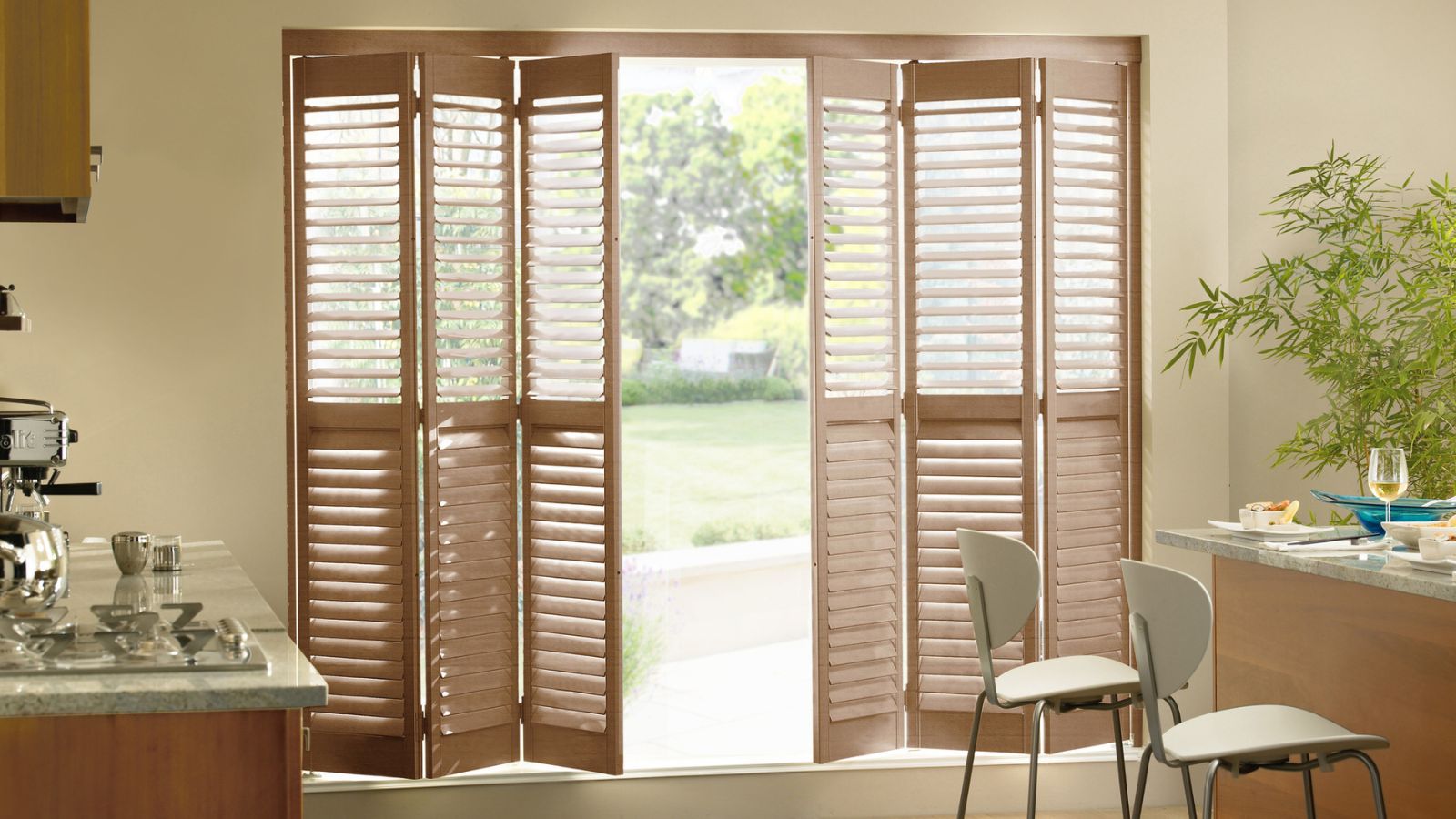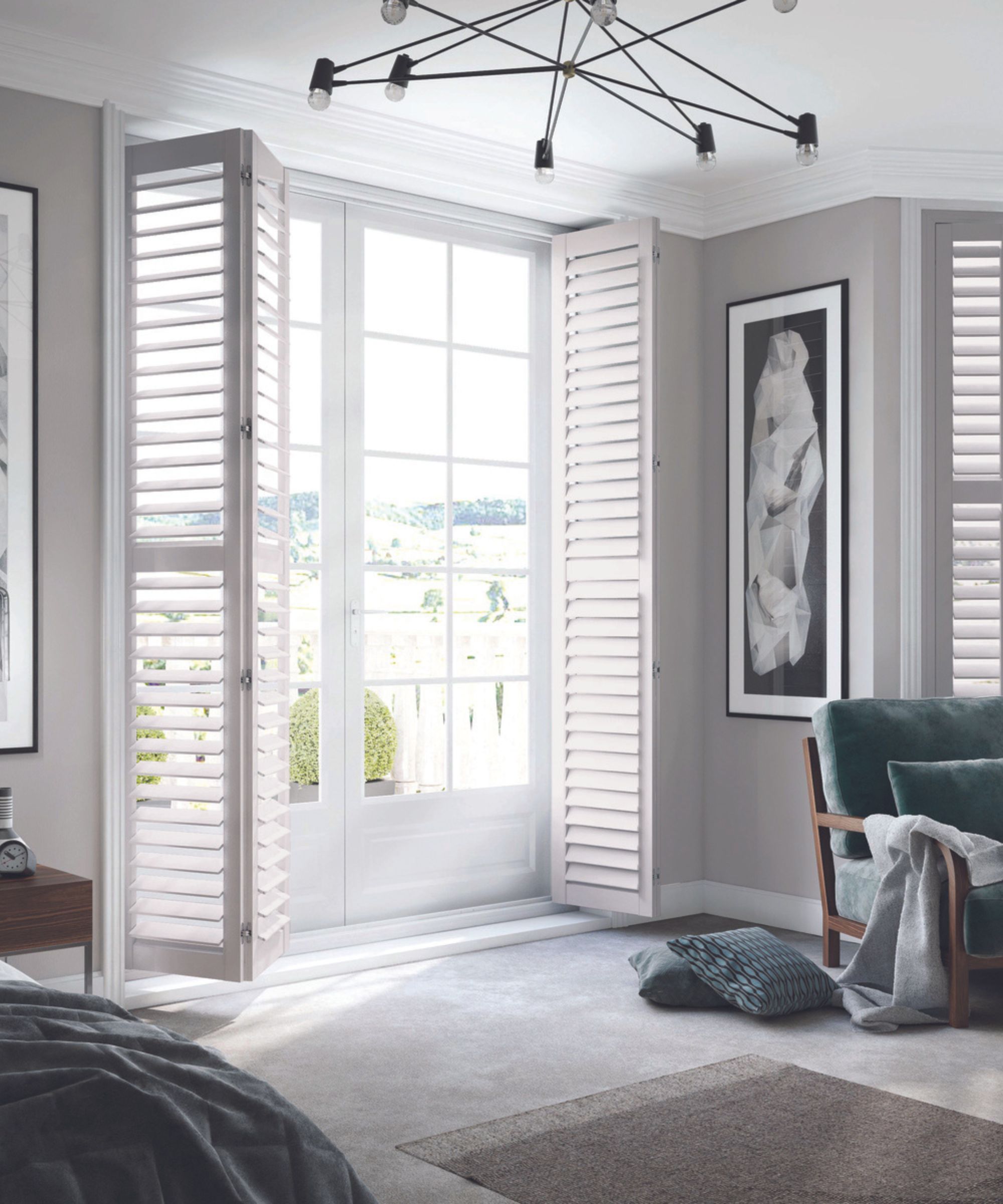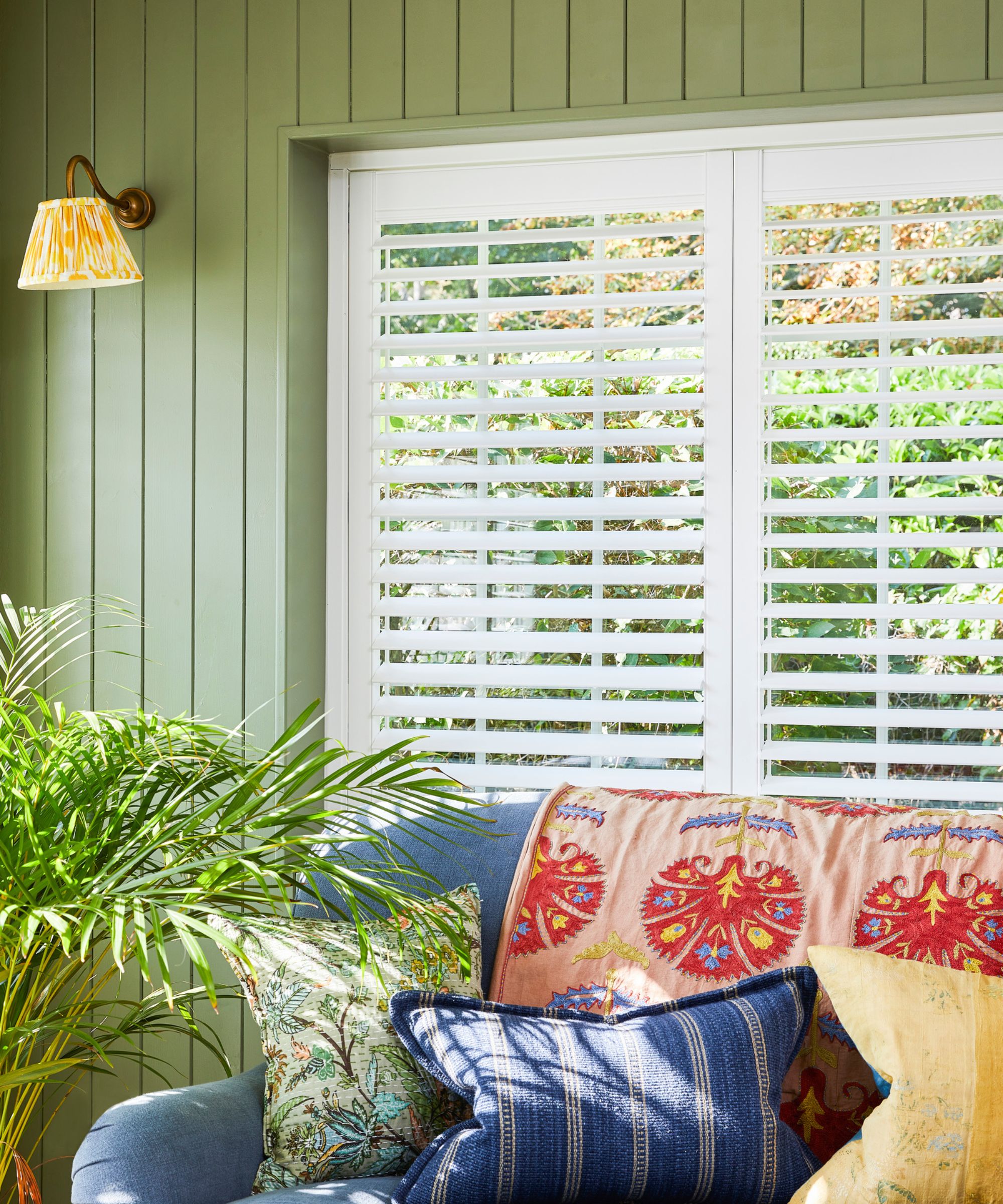Should you add shutters to a house? Experts suggest they may boost your curb appeal
The pros far outweigh the cons when it comes to adding shutters to a house, renovators say


Design expertise in your inbox – from inspiring decorating ideas and beautiful celebrity homes to practical gardening advice and shopping round-ups.
You are now subscribed
Your newsletter sign-up was successful
Want to add more newsletters?

Twice a week
Homes&Gardens
The ultimate interior design resource from the world's leading experts - discover inspiring decorating ideas, color scheming know-how, garden inspiration and shopping expertise.

Once a week
In The Loop from Next In Design
Members of the Next in Design Circle will receive In the Loop, our weekly email filled with trade news, names to know and spotlight moments. Together we’re building a brighter design future.

Twice a week
Cucina
Whether you’re passionate about hosting exquisite dinners, experimenting with culinary trends, or perfecting your kitchen's design with timeless elegance and innovative functionality, this newsletter is here to inspire
Window shutters are not as common in new housing as they used to be. But their quaint charm and practical applications have left many homeowners wondering whether they should add shutters to a house or not.
Shutter ideas can have all sorts of benefits for a home, from increasing privacy, keeping heat in and out depending on the season, and even adding curb appeal. However, they add another thing you need to maintain, could limit light, and are not always cheap to install.
We asked contractors and home renovation experts for their thoughts on these alternative window treatments. Here, they weigh the pros and cons of adding shutters to a house to help you decide if this curb appeal upgrade is right for you.
Should you add shutters to a house?
Despite being a renovation project that will add value to your home, shutters aren’t right for everybody. What’s more, you will have to pick between indoor shutters and outdoor shutters – both of which have different benefits and drawbacks, making the decision even harder.
This is what you should consider before installation.
The pros of adding shutters to a house

1. The increase your privacy and security
Both indoor and outdoor shutters can help to secure your home without a security system while also improving your privacy, points out Josh Rudin, expert contractor and owner of ASAP Restoration. Breaking in through a window and a shutter is not as easy as picking a window lock, for instance. Not only are they a barrier, but will actively dissuade potential thieves, too.
‘The ability to affect privacy with shutters is a major benefit,’ Josh Rudin continues. ‘They won’t blow around in the wind and accidentally get caught on the door handle exposing the inside of your home to anyone who cares to look without you even noticing.’
Design expertise in your inbox – from inspiring decorating ideas and beautiful celebrity homes to practical gardening advice and shopping round-ups.
2. They make your home more energy efficient
While energy-efficient windows can help slash your energy bills, shutters can have a similar effect – often at a fraction of the installation costs, continues Josh Rudin, expert contractor:
‘Being able to affect the light and airflow in your home is a huge factor in controlling the energy efficiency of your property. If the house is too hot, open the shutters, if it’s too cold, you can close them.
‘This works the same way with light too, as preventing the UV radiation from entering the home can keep the temperature down in the first place.’ This makes shutters perfect for cooling down a room fast without AC or a fan.
3. They boost curb appeal
Shutters – both indoor and outdoor – are one of the top five curb appeal ideas that people often overlook.
‘They provide a classic look that can enhance the curb appeal and overall value of a property,’ assures Pam Hutter, principal at Hutter Architects. The fact that they are both beautiful and practical is just an added extra. More often than not, you will see a return on your investment if you come to sell your home.
The cons of adding shutters to a house

1. Installation can be expensive and time-consuming
So far as window treatment ideas go, shutters are not the most affordable options – especially if you are mainly looking for a way to block light, warns Josh Rudin, expert contractor.
‘Relatively speaking, shutters aren’t the most expensive items that a home might need, but they are a higher price point than say shades or drapes would be for achieving many of the same goals,’ he explains.
You also have to consider the installation process. Shutter installation is a household project you shouldn't DIY if you want to reap all of its benefits, Josh adds. This will bring the installation cost up as you can bring in professionals.
2. They risk limiting your light control
If you struggle to increase natural light in your home as it is, shutters (especially indoor shutters) can make it even harder to control, warns Jerome Bertuglia, architect and owner of Prime Homes:
‘On the downside, shutters can reduce the amount of natural light entering the home and may not fit every window design easily – requiring custom solutions that add to the cost. In one case, we modified the design to include half-height shutters that provided privacy and energy benefits while still allowing ample natural light.’
3. You have to maintain them
Maintaining shutters is time-consuming, and can add to your cleaning to-do lists and home maintenance jobs, reminds Jerome Bertuglia, architect. ‘Shutters require ongoing maintenance to maintain their aesthetic and functional integrity – something to keep in mind for areas with harsh weather conditions.’
For indoor shutters, you will need to regularly remove dust to maintain their aesthetic appeal, and periodically clean hinges or moving parts to keep your shutters free moving. Outdoor shutters, on the other hand, will need cleaning and infrequent paint jobs to protect the material from the elements – especially in the case of wooden shutters.
FAQs
Can you open windows if you have shutters?
If you have shutters, you can still open your windows as long as they are installed correctly by a professional and you choose the right type of shutter for your home and window.
Are shutters on houses outdated?
Shutters on houses are not outdated, and they do not seem to be going anywhere any time soon. Shutters have been shown to improve curb appeal and even boost your home value when installed correctly and are well maintained.
Whether or not shutters are for you will largely depend on whether you think the benefits outweigh the drawbacks. If your home gets plenty of natural light, for instance, then shutters might not be a problem. However, if you hate yard work and home maintenance, you might want to give them a miss unless you are open to hiring help.
Remember when picking between indoor and outdoor shutters to consider which you will be more likely to look after, and your access requirements, too. You might have to go outside to close outdoor shutters in some areas of your home – are you likely to leave them open if so? At this point, they might not be worth installing.

Chiana is Homes & Gardens’ kitchen appliances editor. With a lifelong passion for cooking and baking, she grew up experimenting in the kitchen every weekend with her baking-extraordinaire Mom, and has developed a great understanding of how tools and appliances can make or break your ideal relaxing kitchen routine.